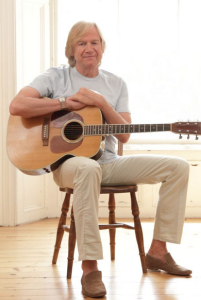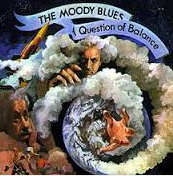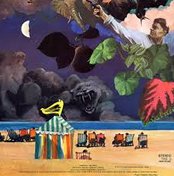Justin on How the Music Industry has Changed
If you are reading this you know that the world of music is constantly changing and moving. Regarding the 'music business': right now there is a push by influential and powerful artists to take more control of their recordings. I do hope it succeeds, as many of the things that the generation of musicians before mine fought for have been eroded.
As far as the music itself, that will always move on, change shape, and be vibrant. I hear new things every day that I think are great, and there will always be brilliant and inspiring music being made. Most of the big changes belong to the young generation, and rightly so, they are always at the forefront. The most valuable commodity in music is youth.
I'm sure young people know that the chances of success are rare and often fleeting. I do feel for many of the TV talent show performers because they must know that the judges are the stars, rarely the singers. But one time in a hundred it can bring fame. It's just that your 15 minutes of fame, and the manner of it, will be remembered for ever. Mostly, I admire the groups, singers and artists that can play live and create magic. That's where happiness lies, and that's where they will find a lasting career.
The technology of music is moving quickly too. Everyone can 'sing in tune' on any recording because of fabulous auto-tune software, and samples of great sounds are heard on every recording. That's as it should be. The echo chambers of the old Decca studios were as much part of the Moody Blues early sounds as the group ourselves.
Often it's worth finding, and following the producers and writers nowadays, maybe more so than following the pop artists, as the boys and girls that put the music and recordings together are developing huge followings, and artists will flock to them. Many of those great music makers started in their bedroom with a computer - and can still make wonderful recordings there! New software and processes are introduced everyday.
But I think the huge change in music recording was in the 1980's with the introduction of the Lynn Drum as well as gorgeous sounding keyboards and samplers. 'Time' in music is so important and the Lynn drum took it from being ragged to 'in the pocket'. It was so exciting to be in London, and working with Tony Visconti, and having hit singles during those years. London was a fabulous place to be with beautiful people and music. If I could only listen to the music from one decade it would (probably) be the 1980's.
Right now there is so much music fighting to be heard, and I consider myself extremely lucky to have found my way through the music jungle in the 1960's. The day Mike Pinder called me in Swindon, after I had moved on from under Marty's wing, was a great day. Things are like that in music and the music business - you never know where the fortunate breaks are going to be, or come from, but I am optimistic and secure in the knowledge that music is in good hands as we go ahead into more musical adventures - in my own life, for all music makers, and for music lovers, like you and I.


